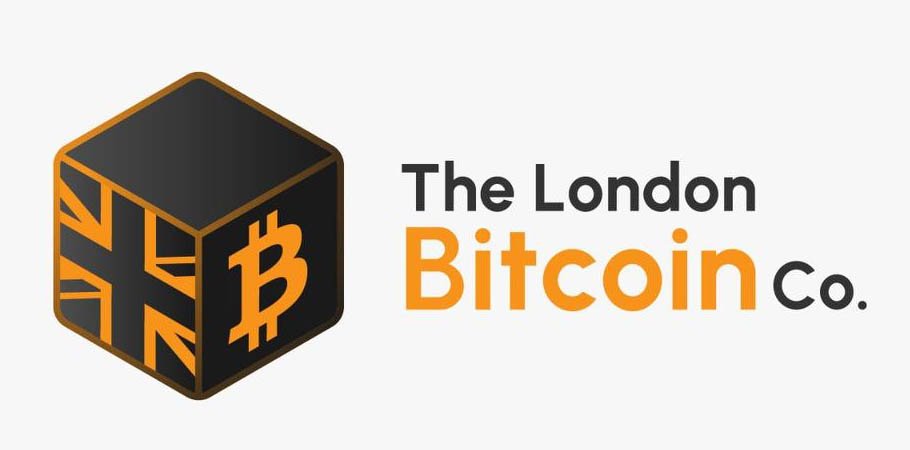Hewie Rattray remembers the price of bitcoin when it was just a whisper on campus: thirty bucks. Back then, he and his university friends weren’t thinking about treasury strategies, they were just obsessed with this new magic internet money.
Twelve years later, that obsession has matured into something more concrete: a public company. Rattray now leads The London Bitcoin Company, the first and only Bitcoin-focused firm on the main board of the London Stock Exchange.
“I Had to Get a Real Job”
Rattray’s Bitcoin journey mirrors that of many early adopters: early fascination, then detour. After university, he qualified as a London stockbroker, worked in corporate finance, and helped bring small-cap IPOs to market during the 2017 boom.
“We were a big part of that initial gold rush,” he said. One of the companies he backed, Argo Blockchain, briefly reached a multi-billion-dollar market cap before collapsing under its own leverage. Lesson learned.
He moved to Singapore, ran a venture fund, then returned to London and consulted for what would become The London Bitcoin Company. When the company secured its LSE listing in early 2025, the board offered him the CEO seat. He took it but only on one condition:
“We adopt a bitcoin treasury policy and make that the focus of the business. Not the mining.”
The board agreed. Now Brits could finally get bitcoin exposure without begging their bank not to block the transaction.


Why British Investors Need a Bitcoin On-Ramp
For Rattray, this pivot was not about making headlines in the press. The real target was a trillion pounds stuck behind red tape.
“Buying bitcoin in the UK is a mess,” he said. “The banks make it difficult, exchanges get flagged, just getting access to the asset itself is a pain.”
But pensions? That’s another story.
Through Self-Invested Personal Pensions (SIPs), the UK’s equivalent of a 401(k), and tax-shielded accounts like ISAs, British investors have about a trillion dollars in self-managed capital. Most of it can’t touch a bitcoin ETF. But it can buy shares of a company on the LSE.
“We’re the only LSE-listed Bitcoin company with that access. That’s our wedge,” Rattray said.
Institutional money in the UK, like the pension funds and the trusts, can only buy stocks on the main board of the LSE. That gives The London Bitcoin Company a massive structural edge.
“Our mission over the next six months is to onboard those institutions. Most of the money in London is locked into the LSE. And we’re the only bitcoin exposure they can buy there.”


Mining, Holding, Stacking
The London Bitcoin Company isn’t a miner, but it mines. It isn’t an ETF, but it holds bitcoin. This hybrid model allows flexibility in a tight regulatory climate.
Originally listed on the Aquis Stock Exchange under the ticker $BTC in April 2023, the company has built a network of mining clusters across North America, from Texas and Nebraska to Labrador in Canada. But the real focus is accumulation.
“We raise capital. We buy bitcoin. We hold it. That’s it,” Rattray said.
And now that they’ve uplisted to the LSE under the ticker BTC.L, the playbook is simple: stack as much bitcoin as possible, stay lean, and never sell.
The Custody Tradeoff
The London Bitcoin Company stores its bitcoin with Fidelity, a decision some Bitcoiners dislike because it’s custodial. But there’s nuance: Fidelity is one of the few custodians that runs its own infrastructure and handles private key management in-house.
Unlike many ETF providers, they don’t outsource that responsibility. That matters. As a publicly listed company, The London Bitcoin Company also needs a custodian that can satisfy regulators, and Fidelity has the credibility and track record to do just that.
Rattray acknowledges these tradeoffs noting, “Yeah, I get the ‘not your keys, not your coins’ thing…but try passing an audit with a seed phrase.”
Fidelity is not just a large traditional finance household name, it’s one of the first large institutions to get serious about Bitcoin. CEO Abigail Johnson has been pro-Bitcoin since 2017.
“They’re more OG than half the crypto-native custodians,” Rattray said. “They know what they’re doing.”
And when critics ask why The London Bitcoin Company doesn’t offer proof-of-reserves yet? Rattray noted, “Do you ask Apple to show proof of its cash reserves? No. You trust the auditor. That’s how public markets work.”
MetaPlanet and the Cult of the Treasury Company
During a recent trip to Tokyo, Rattray wore a MetaPlanet t-shirt. What happened next shocked him.
“I must have been stopped by every third person,” he laughed. “Poker game, taxi ride, everyone was showing me their MetaPlanet bags.”
He’s not exaggerating. The company has built a fanbase in Japan that rivals Apple in San Francisco. Rattray wants that same energy in the UK. “I want name recognition. I want to be the premier bitcoin holding company in Britain.”
The London Bitcoin Company is now rebranded from its previous name, Vinanz. The goal: build that cult-like loyalty and stack sats.
That kind of brand loyalty provides more than just a marketing win, it creates financial leverage. In bitcoin treasury land, fanbases buy the stock, cheer the dilution, and celebrate every new sat added to the balance sheet.
Treasury Companies Could Become The New ₿anks
In many ways, the treasury company model flips Wall Street logic on its head. Many shareholders don’t mind dilution, in fact some beg for it if it means increasing the BPS (Bitcoin Per Share).
This mindset reflects a broader bitcoin-native phenomenon: a willingness to sacrifice short-term gains for long-term accumulation.
Even miners, whose revenue gets cut in half every four years, see the halving as a bullish milestone, not a threat. Scarcity is the feature. “It’s the only sub-industry where investors cheer for dilution,” Rattray said. “All they want is for us to own more bitcoin.”
The London Bitcoin Company is studying the new playbook: convertible notes, warrants, ATM offerings, bitcoin bonds. The goal is to grow smart. “It’s an arms race,” he said. “Get the asset, own it cheap, and do it fast.”
Eventually, Rattray sees these companies turning into something bank-like.
“If you’re holding that much bitcoin, you’ll need to find ways to generate yield or revenue from your balance sheet,” he explained. “That’s the obvious next move.”
The Question for Satoshi
If Rattray could ask Bitcoin’s mysterious creator one question, it would be this: “Is this what you wanted? Are you okay with governments and banks now holding bitcoin?”
His guess? Satoshi might not have been rooting for institutional adoption but he wouldn’t reject it either. “He built Bitcoin for the world. And the world includes banks.”
Stack, Hold, Repeat
As The London Bitcoin Company grows, Rattray’s mission is clear: stack bitcoin, hold it forever, and open the door for UK institutions to do the same.
“The company with the most bitcoin wins,” he said. “And we want to win.”
The way he sees it, capital markets are waking up. And when they do, he intends to already be holding the keys. While the rest of the UK catches up, Rattray’s not waiting, he’s positioned: listed, liquid, and loaded with bitcoin.
